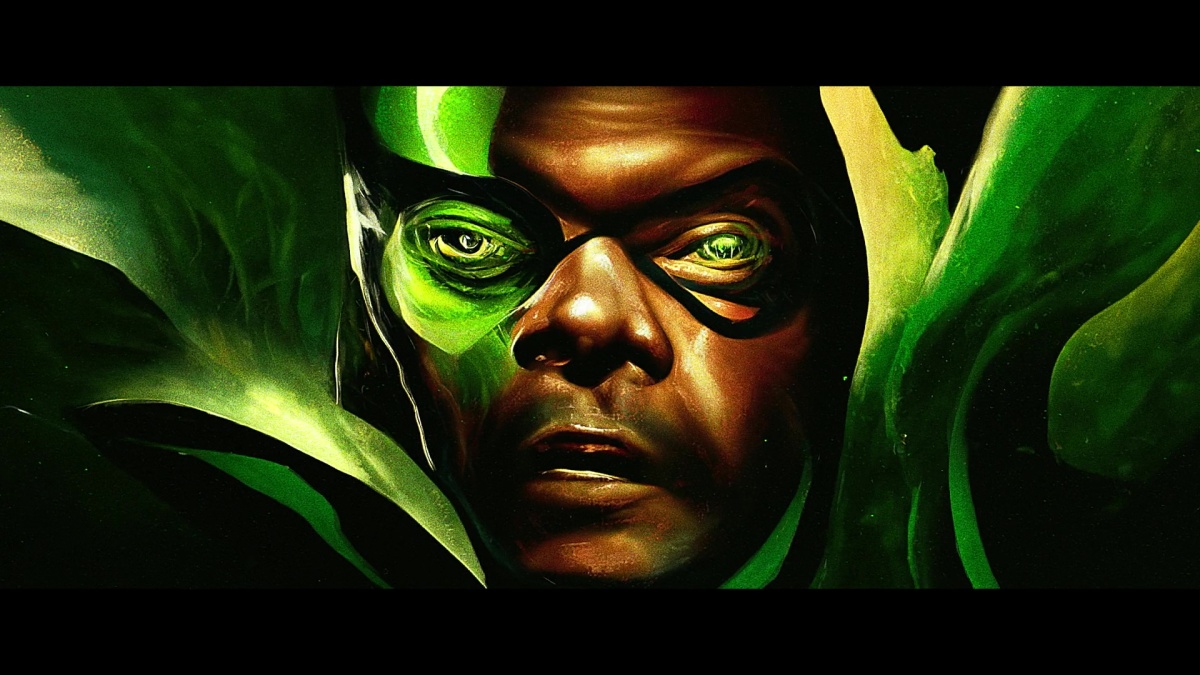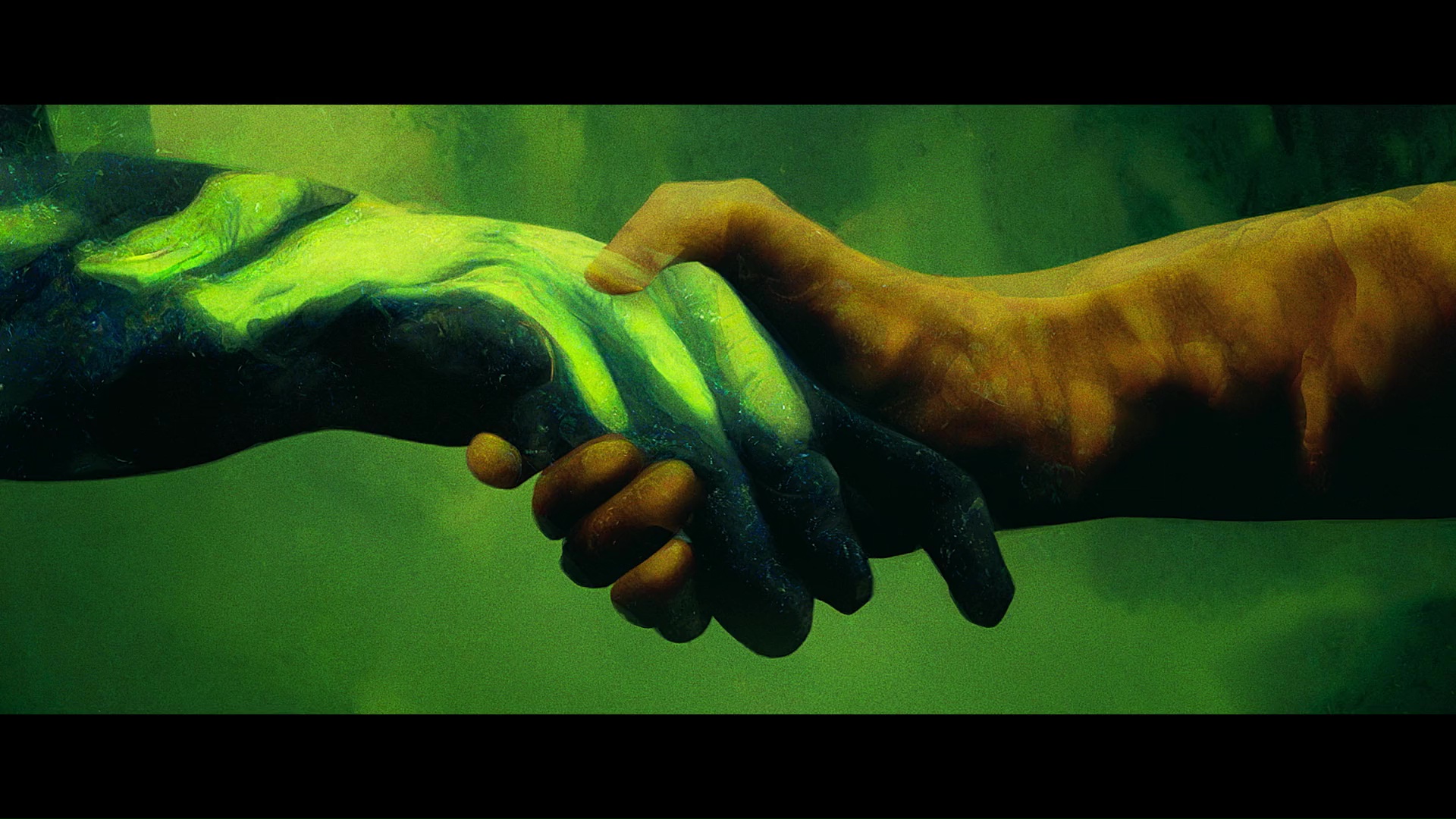
If the ‘Secret Invasion’ title credits aren’t an ethical use of AI art, what is?
This isn’t a facetious question; it’s an unanswered one. What, if anything, is an ethical way to use current generative AI in a major, public-facing work of art?
This quandary emerges from the furore regarding Marvel Studios’ use of AI to create the main title sequence of its latest show, Secret Invasion. AI generated art — in this climate? By a company with billions to spend? Unacceptable! But this is not quite the secret AI invasion it was initially characterized as.
While some revolted at first (and understandably) when they thought that Marvel had simply prompted Midjourney or Runway to create the opening sequence of a show with a 9-digit budget, the truth is considerably less villainous. This was a stylistic choice pitched and executed by professional artists who specifically aimed to evoke the sense of unease and imitation that pervades both the show and modern life.
These title credits were made by the team at Method Studios, which has done VFX work for Marvel across several films and shows, including the final battle sequence in Black Panther. As you can see from its title work montage, it also did the intros for Godless, Warrior, The Twilight Zone, and many other major productions — each with a distinct and artificial key look tied into the show’s themes.
TechCrunch contacted Method for comment yesterday, but they ended up giving their side of the story exclusively to The Hollywood Reporter, which is of course their right. They wrote in part:
It involved a tremendous effort by talented art directors, animators (proficient in both 2D and 3D), artists, and developers, who employed conventional techniques to craft all the other aspects of the project. However, it is crucial to emphasize that while the AI component provided optimal results, AI is just one tool among the array of toolsets our artists used. No artists’ jobs were replaced by incorporating these new tools; instead, they complemented and assisted our creative teams.
In the case of Secret Invasion, a show rooted in the idea of alien beings impersonating humans, Method likely pitched AI-generated imagery as a timely visual parallel. What could be better to suggest uncanny imitation and the discomfort it brings? And what’s more, they probably pitched this look way back in 2021 or early 2022 in order to ship it on time. That rather contradicts the idea that Marvel is turning to AI as a result of the writers strike or as some other cost-cutting measure.
Now, there is certainly the matter of whether Method used generative AI tools that themselves relied on scraping the works of artists without paying or crediting them (Method did not provide detail beyond that it used “a custom AI tool”). That is definitely a legitimate grievance!
But how far should we take that grievance? What forms of art that do use generative AI should be permitted, if any? Is it only OK if the final result doesn’t use unaltered generated imagery, or is it also exploitative to use it in the concept stage? Are there generative models that are ethically trained that one could use — or is the whole mode of creation (if we can call it that) compromised?
Again, these aren’t rhetorical or facetious questions, they’re real and open ones. Depending on what you think, the title sequence by Method may, or may not, be a “good” example of how to use generative models to produce original art.
Personally, I think this use case works. There is no attempt to disguise that it is AI-generated, which is one of the practices people are worried about. The entire look is deliberately designed to be unrealistic and feel off. You think an AI couldn’t produce a better likeness of Samuel L. Jackson? The art is not meant to replace “real” art but to clearly show that it is itself a poor and creepy imitation. The choice to represent the stars and landscapes using the distorted imagery produced by flawed and odd AI is an artistic one, a style meant to represent the themes of the show.

Image Credits: Marvel Studios
Of course the timing is poor with the strike and other questions of artistic exploitation. No one disputes that, ethically produced or not, the titles feel out of touch right now — but arguably that’s because the very themes they are meant to express have become mainstream!
Had they just done stills of Nick Fury with a backdrop that only shows itself as AI when you look closely, that would be very different. An attempt to replace an artist’s contribution, at this stage of the debate, is by necessity something of a surreptitious approximation — like Indiana Jones replacing the golden idol with a bag of sand. He didn’t succeed, and AI art has similar trouble (though as yet no boulder).
Notably, if you watch the show to the end, you’ll find that there are credits there, and an enormous number of the people who worked on the show are artists — hundreds of them, at a dozen VFX houses and units. Marvel is not circumventing artists — if I had to guess, I’d say it’s probably the single biggest employer or customer of professional artists in the world. (Certainly so if you include Disney.)
I’ve also heard that they often pay bottom dollar and work those artists like borrowed mules, of course, but that’s another matter (and one worth taking them to task for). This treatment for the titles didn’t read the room correctly, and there’s still the question of whether the AI tools used did, in fact, co-opt other artists’ creations in order to produce the result we saw — however carefully “guided” and composited it was. So no free pass for Marvel.
But the knee-jerk reaction by many also feels out of touch in its own way. Artists who create for a living are, from my experience speaking with them, less concerned about AI tools themselves (in fact many already use them in their processes) than with the people who make them and who make decisions about them.
An generative model couldn’t and didn’t produce this opening sequence — it was storyboarded, sketched, generated, tweaked, animated, and all the rest by professionals. Yet the fears that erupted when people saw it reflect a very real concern that penny-pinching producers and managers will choose to use AI even though it doesn’t do what they think — and certainly in spite of the ethical considerations. As others have pointed out, the tech can be scary, but the people using it are much, much scarier. In this case it was a bit of a miss but not the insult to artists that some have judged it.


